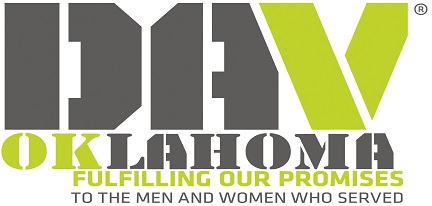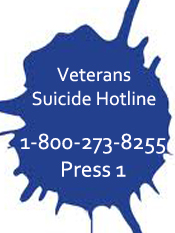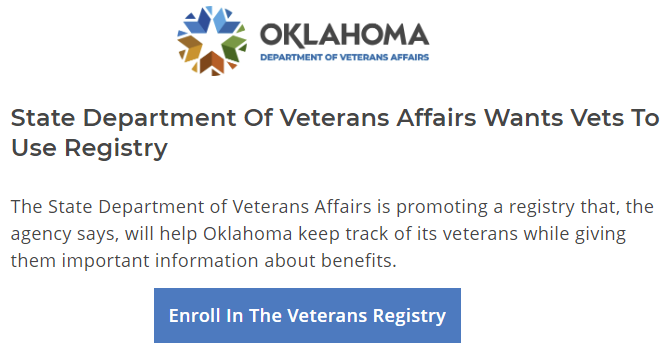The U.S. Department of Veterans Affairs (VA) announced it will discontinue the Rapid Appeals Modernization Program (RAMP), which provided eligible Veterans with early resolutions to their appealed claims, ahead of full implementation of the Veterans Appeals Improvement and Modernization Act of 2017. VA will not accept RAMP elections from Veterans with a legacy appeal after March 01, 2019; however, RAMP claims pending on or after 15 FEB will continue to be processed until the inventory is complete. Veterans who appeal a VA decision will have three decision review choices: Higher-Level Review, Supplemental Claim, and appeal to the Board of Veterans’ Appeals. VA will now offer Veterans greater choice in how VA reviews their claim is committed to ensuring the claims process is accurate, timely and fair. “VA has been preparing for full implementation of the Appeals Modernization Act over the past 18 months to ensure the new, streamlined process is available to Veterans who have long sought reform of the broken legacy system,” said VA Secretary Robert Wilkie. “We encourage Veterans whose appeal is currently in the legacy system to opt in to RAMP to take full advantage of the benefits of the new process.”
VA RAMP update – program to end ahead of implementation of new Veteran appeals law:
VA disability claims update – priority processing for Purple Heart Awardees:
On 26 FEB at a congressional hearing before the House Appropriations Subcommittee on Military Construction, Veterans Affairs, and Related Agencies, VA Secretary Robert Wilkie announced that effective in April, VA will provide priority disability benefits claims processing for the initial claims from discharged combat Veterans who have been awarded the Purple Heart Medal. “Those who hold the Purple Heart, the recognition of wounds taken in battle, will now receive priority consideration when it comes to claims before the Department of Veterans Affairs,” said Secretary Wilkie. The Veterans Benefits Administration will amend its priority processing categories to include initial claims received from Purple Heart recipients on or after April 1, 2019. Purple Heart recipients are already treated on a priority basis at VA hospitals and are exempt from co-payments for their medical care
Vet small businesses – new law offers surplus equipment to vet entrepreneurs for free:
Scattered in warehouses throughout the country are the kinds of federal resources that can help make small businesses thrive — laptops and office furniture, construction equipment and farm tools that have been gathering dust, unused and unseen, year after year. Meanwhile, thousands of American service members are returning home from war, taking off their uniform then taking a chance: trying to scrounge up enough resources to start their own small businesses, all too often struggling to stay in the black if and when they get off the ground.
After both branches of Congress overwhelmingly voted for its passage in December, my Veterans Small Business Enhancement Act became law earlier this month, allowing veteran small business owners to acquire those pieces of equipment and personal property that the federal government no longer has any use for, effectively free of charge. A win-win, by anyone’s estimation. · Now that farmer in southern Illinois might not have to stay up at night, worried about how he’ll possibly be able to pay for that generator. · Now that veteran who returned from war and went back to school can get the computers she needs to open the doors to her very own practice. · And now American taxpayers will no longer have to foot the bill to store all those resources that belong in office buildings and cornfields.
And all you have to do to begin laying claim to those unused items and their untapped potential is contact your local state agency.[Source| Sen. Tammy Duckworth]
VA disability rating – what you need to know when requesting an increase in your disability:
Did you know that you can have your VA disability compensation benefit increased by the Department of Veterans Affairs? Many types of medical conditions get worse over time. If you are getting disability benefits from the VA, you have the right to request that your rating be increased if your medical condition gets worse or causes your health to deteriorate. Before you file for an increase in your disability rating, make sure you know what you can expect from 24 the VA, and be prepared for both the best and worst outcomes you might face after requesting a disability rating increase.
When you request an increase in your VA disability rating, you are in effect opening up your claim for reevaluation. The VA can actually lower or terminate your existing rating, so you need to make sure you have all your ducks in a row before you file. · If you’ve had your VA disability for more than five years, the VA has to prove that your illness or disease has gotten better and will stay better before reducing or terminating your rating. 25 · If you’ve had your disability for 10 years or more, the VA can will rarely terminate your benefits unless it proves that you’ve been fraudulent in your claim. It can, however, reduce your benefits. · If you’ve had your disability for 20 years, the VA won’t reduce your rating below the lowest one you’ve received in those 20 years. The VA can also reduce or terminate your compensation if you miss a scheduled disability rating medical exam. Whatever the situation, be prepared to send in a ton of documents, fill out lots of forms (this may be easier to do using eBenefits instead of regular mail), and wait for several months before the VA makes a decision on your claim.
Congressional Budget Office [CBO] budget recommendation – more 2019 TRICARE & VA proposals:
The CBO also suggested instituting enrollment fees for Tricare for Life, the program that serves as supplemental coverage for military retirees on Medicare. Analysts estimated that the Defense Department could save $12 billion between 2021 and 2028 if it adopted annual enrollment fees of $485 for an individual or $970 for a family for Tricare for Life, in addition to the Medicare premiums most military retirees 65 and older pay.
The Department of Veterans Affairs also presents several opportunities for cost-savings measures. Some suggestions in the CBO assessment include: · Narrowing eligibility for disability compensation for seven diseases the Government Accountability Office has said are not caused or aggravated by military service, including arteriosclerotic heart disease, chronic obstructive pulmonary disease, Crohn’s disease, hemorrhoids, multiple sclerosis, osteoarthritis, and uterine fibroids. This option would save $33 billion over 10 years. · Ending the VA’s individual unemployability payments to disabled veterans when they turn 67, the retirement age for receiving full Social Security benefits, which would save an estimated $48 billion. · Reducing disability benefits to veterans older than 67 who are receiving Social Security payments. This could save the government $11 billion. · Eliminating disability compensation for 1.3 million veterans with disability rates below 30 percent, saving $38 billion over an eight-year period.
Finally, the CBO said the federal government could raise revenue by including VA disability payments as taxable income. According to the CBO, if all disability payments were to be taxed, federal revenues during the time frame would increase by $93 billion
This new law gives vet small business owners surplus federal equipment — for free:
Scattered in warehouses throughout the country are the kinds of federal resources that can help make small businesses thrive — laptops and office furniture, construction equipment and farm tools that have been gathering dust, unused and unseen, year after year. After both branches of Congress overwhelmingly voted for its passage in December, my Veterans Small Business Enhancement Act became law earlier this month, allowing veteran small business owners to acquire those pieces of equipment and personal property that the federal government no longer has any use for, effectively free of charge
Vets could soon get free child care during medical treatment:
The Veterans Affairs Department could soon provide free child care for veterans undergoing treatment for mental health and other medical issues — a move some lawmakers hope will make it easier for veterans to get help.
The House of Representatives passed a bill Friday that seeks to make permanent an existing pilot program rolled out in 2011. At the time, a VA survey found that more than 10 percent of veterans had to cancel or reschedule VA appointments because they lacked child care, and one-third said they were interested in child care services.
“We made a promise that our veterans will get the care they’ve earned,” Rep. Julia Brownley, D-Calif., said in an email. “We can’t put insurmountable roadblocks in front of their ability to receive that care.”
The Veterans’ Access to Child Care Act calls for the VA to provide child care on site, pay veterans a stipend for the full cost of child care at licensed facilities, pay the facilities directly or collaborate with other agencies.
• Some veterans benefits you may not be aware of:
Many veterans know about the basic health care and education benefits available to them through the Department of Veterans Affairs: Tricare and the GI Bill.¬¬¬ While these benefits alone are substantial, numerous other programs help provide more benefits to veterans and their families. Even within the health care and education programs are little-known benefits to improve the lives of veterans and help ease the financial burden of medical care or other expenses. Following are some veterans benefits you haven’t heard about that all veterans should see if they qualify for.
1. Long-term Care
Long-term care is expensive, but often necessary to provide care for aging relatives. Through the
Aid and Attendance program, many veterans are eligible to receive money to cover the cost of
nursing homes, assisted living programs and other long-term care options. With the ability for
couples to receive up to $25,020 a year, the Aid & Attendance benefit will help take care of a
significant portion of long-term care costs. Surviving spouses of veterans are also eligible to
receive up to $13,560 a year to cover their long-term care costs.
2 Caregiver Support
Should you choose to take care of an ailing Veteran at home, the Department of Veterans Affairs
offers a caregiver support program. While this program does not offer any monetary support to
caregivers, they are provided with a free support line and a caregiver support coordinator to help
navigate military benefits and the stress of care giving.
3 Free Tax Preparation
Veterans and their family have access to free tax preparation services through the Volunteer Income
Tax Assistance offices on military bases. The individuals who work in the offices have expertise
working with the complicated nature of military-related tax issues.
4 VA Foreclosures
The VA maintains a list of homes serviced by VA loans that have gone into foreclosures. Veterans
have the ability to search the list of VA acquired properties and purchase homes at a discount. You
do not have to be a veteran to search the properties, but all properties qualify for VA financi
5 American Corporate Partners
American Corporate Partners connects veterans with top companies to help them obtain a job after
their time of service. Along with being connected to job opportunities, veterans have the
opportunity to receive one-on-one mentoring and other career development serv
• Gulf War era survey begins:
Approximately 700,000 men and women served in the Persian Gulf during Operations Deser Shield and Desert Storm in the early 1990s. A prominent condition affecting these Gulf War veterans is a cluster of medically unexplained symptoms that include fatigue, headaches, joint pain, indigestion, insomnia, dizziness, respiratory disorders, various skin probloems, and memory impairment. These may be considered presumptives by the department of Veteran Affairs for those who served in either operation Desert Shield or Desert Storm. Million Veteran Program, a part of the VA, began mailing out surveys the beginning of December, 2018. The survey is designed to collect additional information from those who served in hope of identifying genes that contribute to, or protect against, developing Gulf War illness.
If you served in the Gulf War you may want to consider filing a claim if you have one of the aforementioned illnesses. I suggest you contact a service officer connected with either a veteran organization or one connected with the Oklahoma Department of Veteran Affairs to get more information.
• House Bill, H.R.96 |- bill introduced to require care for all vets:
With 2018 now gone, and with it the 115th Congress, federal lawmakers left a lot on the table that would help veterans nationwide. One such bill would require the VA to provide dental care. The legislation, which was reintroduced by Rep. Julia Brownley (D-CA-26) on 3 JAN, would require the VA to provide dental care to veterans in the same manner as any other medical service. Where it stands now, only veterans with a service-connected disability rating of 100 percent, those with a service-connected dental condition, former prisoners of war, and some homeless vets, are eligible to open up and say “Ahhh” for a VA dentist. The vast majority of veterans are stuck buying dental insurance in the private sector. The bill would also give the VA five years to build up the capacity to provide comprehensive dental care, such as hiring dental staff and building additional facilities. And it’s supported by the Coalition of Veterans Organizations who are sending letters to Congressional staffers to shore up support and hopefully gain some co-sponsors. “Dental care is not merely a matter of cosmetics, but rather, is an essential part of healthcare, as poor dental care is linked to diabetes, cancer, Alzheimer’s and many other diseases,” the letter reads. “The cost of this care would be outweighed by the care that would not need to be provided for these other diseases.”




